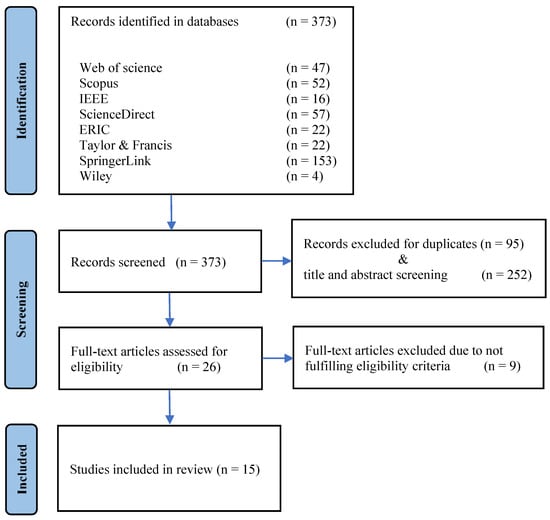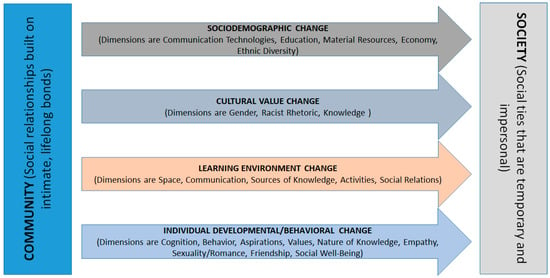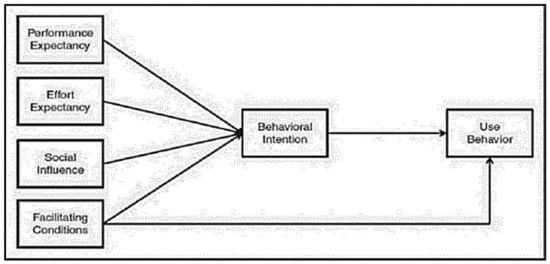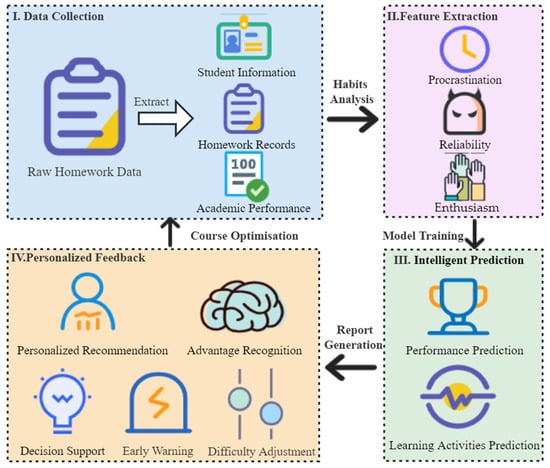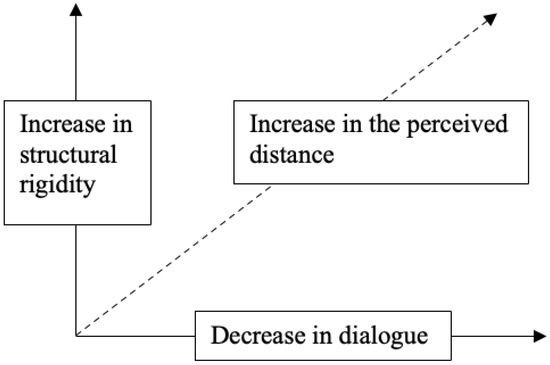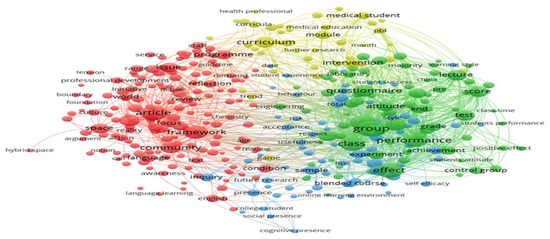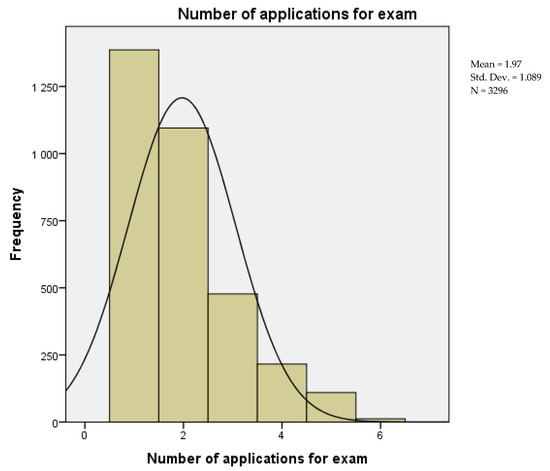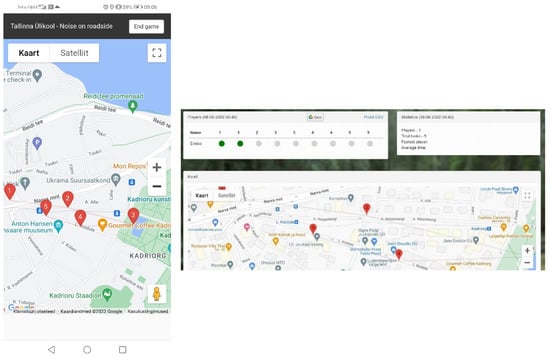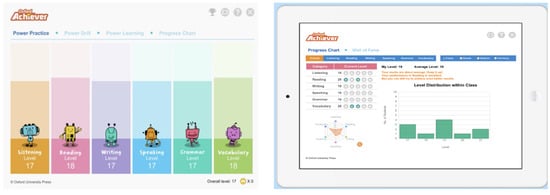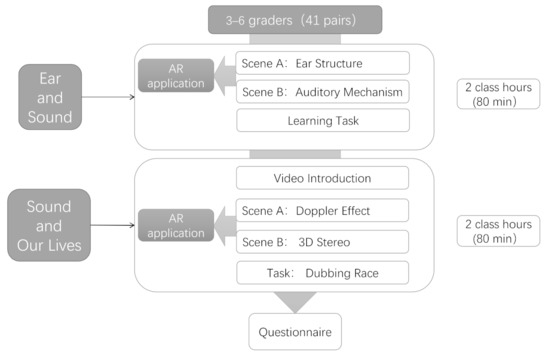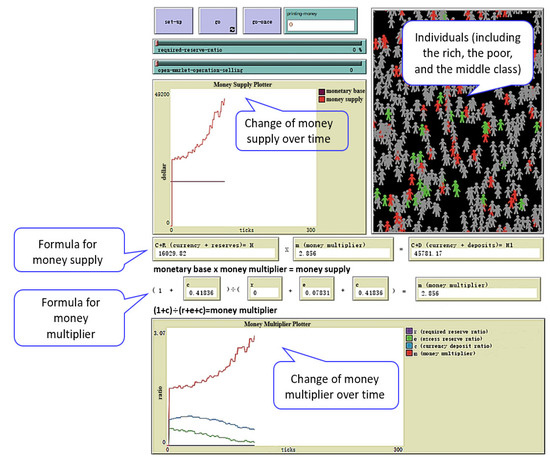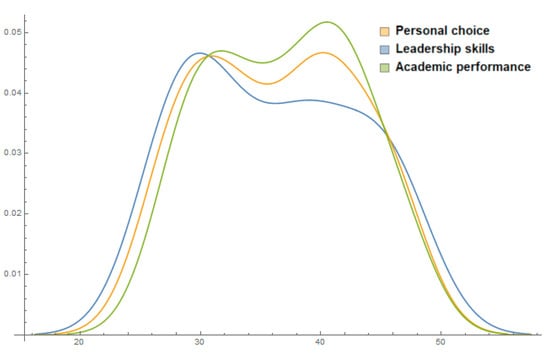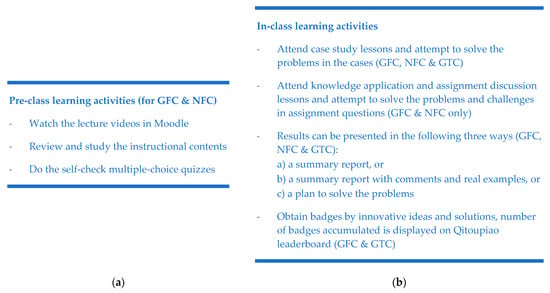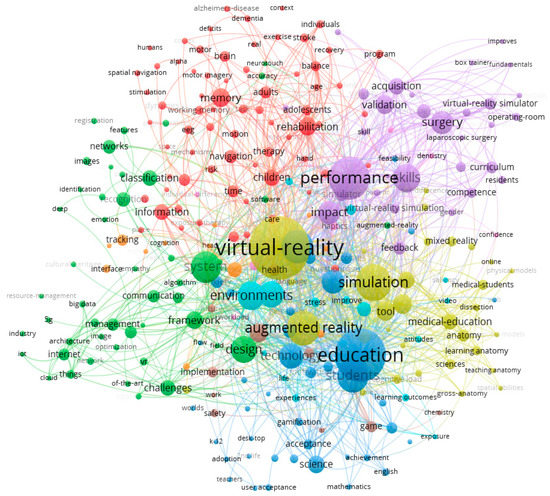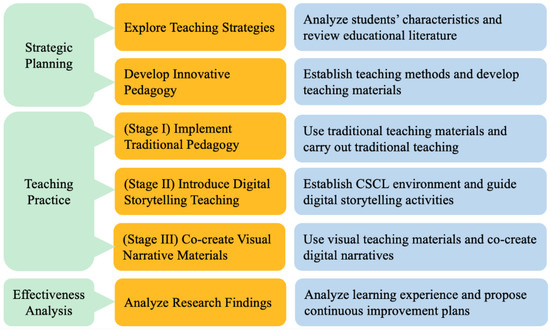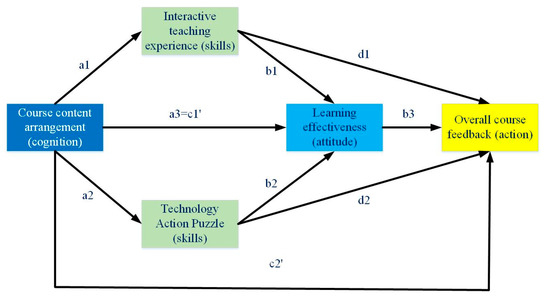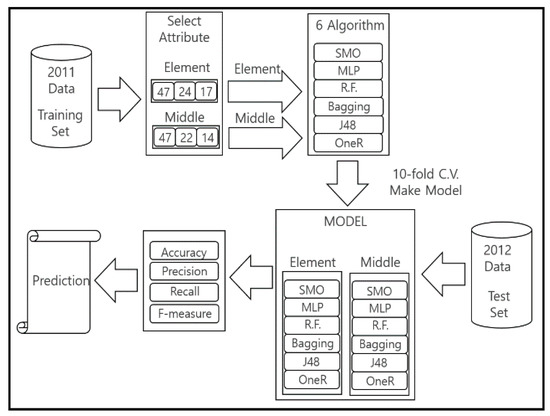Technology-Enhanced Learning and Teaching: Sustainable Education
Share This Topical Collection
Editors
 Prof. Dr. Danial Hooshyar
Prof. Dr. Danial Hooshyar
 Prof. Dr. Danial Hooshyar
Prof. Dr. Danial Hooshyar
E-Mail
Website
Guest Editor
School of Digital Technologies, Tallinn University, Narva Rd. 25, 10120 Tallinn, Estonia
Interests: artificial intelligence in education; educational data mining; educational technology; game-based learning; adaptivity
Special Issues, Collections and Topics in MDPI journals
 Prof. Dr. Michael D. Kickmeier-Rust
Prof. Dr. Michael D. Kickmeier-Rust
 Prof. Dr. Michael D. Kickmeier-Rust
Prof. Dr. Michael D. Kickmeier-Rust
E-Mail
Website
Guest Editor
Institute for Educational Assessment, St.Gallen University of Teacher Education, 27, 9000 St.Gallen, Switzerland
Interests: game-based learning; digital learning; game-based competence measurement; learning and test systems; learning analytics
Special Issues, Collections and Topics in MDPI journals
 Dr. Nour El Mawas
Dr. Nour El Mawas
 Dr. Nour El Mawas
Dr. Nour El Mawas
E-Mail
Website
Guest Editor
Lille Interuniversity Research Center in Education, University of Lille, 59000 Lille, France
Interests: MOOC; technology enhanced learning; instructional design and learning scenarios; learning management system; serious games
Special Issues, Collections and Topics in MDPI journals
Topical Collection Information
Dear Colleagues,
The surge in the proliferation of technology-enhanced learning and teaching has provided researchers, teachers, students, instructional designers, and policy makers with rich opportunities to improve teaching and learning. The global COVID‐19 pandemic has further accelerated the use of technology-enhanced learning in an unprecedented way. This Special Issue will focus on the impact of technology-enhanced learning and teaching on society.
We invite authors to submit high-quality papers containing original research results or survey articles in, but not limited to, the following fields:
- The design of technology-enhanced learning systems and environments;
- The integration of emerging technologies, such as social media, web-based tools, augmented and virtual reality as well as games in teaching and learning;
- Teachers’ readiness to use emerging technologies in classrooms;
- Theoretical frameworks and/or practical strategies on how technology can be used to enhance teaching and learning;
- The best practices for online teaching and learning;
- The assessment of educational technology;
- Psychological, social, and cultural impacts of technology in education;
- Digital citizenship: Concept, practices, and assessment;
- Methods used in technology-enhanced learning systems (e.g., AI in education);
- Learning analytics and educational data mining;
- Adaptivity and personalization in education.
You may choose our Joint Special Issue in Education Sciences.
Dr. Danial Hooshyar
Prof. Dr. Michael D. Kickmeier-Rust
Dr. Nour El Mawas
Guest Editors
Manuscript Submission Information
Manuscripts should be submitted online at www.mdpi.com by registering and logging in to this website. Once you are registered, click here to go to the submission form. Manuscripts can be submitted until the deadline. All submissions that pass pre-check are peer-reviewed. Accepted papers will be published continuously in the journal (as soon as accepted) and will be listed together on the collection website. Research articles, review articles as well as short communications are invited. For planned papers, a title and short abstract (about 100 words) can be sent to the Editorial Office for announcement on this website.
Submitted manuscripts should not have been published previously, nor be under consideration for publication elsewhere (except conference proceedings papers). All manuscripts are thoroughly refereed through a single-blind peer-review process. A guide for authors and other relevant information for submission of manuscripts is available on the Instructions for Authors page. Sustainability is an international peer-reviewed open access semimonthly journal published by MDPI.
Please visit the Instructions for Authors page before submitting a manuscript.
The Article Processing Charge (APC) for publication in this open access journal is 2400 CHF (Swiss Francs).
Submitted papers should be well formatted and use good English. Authors may use MDPI's
English editing service prior to publication or during author revisions.
Keywords
- technology-enhanced learning
- classroom
- systems
- environments
- emerging technologies
- teaching and learning
- impacts of technology in education
Published Papers (20 papers)
Open AccessSystematic Review
Learning Analytics in Supporting Student Agency: A Systematic Review
by
Danial Hooshyar, Kairit Tammets, Tobias Ley, Kati Aus and Kaire Kollom
Cited by 5 | Viewed by 1375
Abstract
Student agency, or agency for learning, refers to an individual’s ability to act and cause changes during the learning process. Recently, learning analytics (LA) has demonstrated its potential in promoting agency, as it enables students to take an active role in their learning
[...] Read more.
Student agency, or agency for learning, refers to an individual’s ability to act and cause changes during the learning process. Recently, learning analytics (LA) has demonstrated its potential in promoting agency, as it enables students to take an active role in their learning process and supports the development of their self-regulatory skills. Despite the growing interest and potential for supporting student agency, there have yet to be any studies reviewing the extant works dealing with the use of LA in supporting student agency. We systematically reviewed the existing related works in eight major international databases and identified 15 articles. Analysis of these articles revealed that most of the studies aimed to investigate student or educators’ agency experiences, propose design principles for LA, and to a lesser extent, develop LA methods/dashboards to support agency. Of those studies developing LA, none initially explored student agency experiences and then utilized their findings to develop evidence-based LA methods and dashboards for supporting student agency. Moreover, we found that the included articles largely rely on descriptive and diagnostic analytics, paying less attention to predictive analytics and completely overlooking the potential of prescriptive learning analytics in supporting agency. Our findings also shed light on nine key design elements for effective LA support of student agency, including customization, decision-making support, consideration of transparency and privacy, and facilitation of co-design. Surprisingly, we found that no studies have considered the use of LA to support student agency in K–12 education, while higher education has been the focal point of the LA community. Finally, we highlighted the fields of study and data visualization types that the studies mostly targeted and, more importantly, identified eight crucial challenges facing LA in its support of student agency.
Full article
►▼
Show Figures
Open AccessReview
Promising Emerging Technologies for Teaching and Learning: Recent Developments and Future Challenges
by
Ahmad Almufarreh and Muhammad Arshad
Cited by 6 | Viewed by 7227
Abstract
As time goes on and the number of people who use information and communication technology (ICT) grows, emerging technologies are receiving a lot of attention from academics, researchers, and users. Emerging technologies are changing more quickly than ever, and it is important to
[...] Read more.
As time goes on and the number of people who use information and communication technology (ICT) grows, emerging technologies are receiving a lot of attention from academics, researchers, and users. Emerging technologies are changing more quickly than ever, and it is important to start building skills early in education by using the right examples to teach and learn about digital citizenship. New pedagogies support individual teaching and learning methodologies for knowledge acquisition and self-directed learning. Hundreds of digital education tools have been developed to increase student autonomy, enhance academic process management, promote collaboration, and improve communication between teachers and students. This article examines the current state of emerging technologies from a variety of educational viewpoints, highlights a few of them, and discusses both their established and potential educational benefits. Additionally, it offers in-depth debates on recent developments and future challenges from a wide range of perspectives. The analysis focuses on peer-reviewed research articles published in well-renowned publications databases over the last 8 years, drawing upon a bibliometric analysis using VOSviewer. The results of this study are also anticipated to serve as a substantial impetus for other universities and colleges worldwide to utilize innovatively and revolutionized technology for better academic performance.
Full article
►▼
Show Figures
Open AccessArticle
Development and Validation of an Instrument to Evaluate Technology-Enhanced Learning and Teaching Sustainability in Teaching Spelling
by
Emily Lau Yen Yen, Harwati Hashim and Melor Md Yunus
Viewed by 1401
Abstract
(1) Background: The current advancement in technology-enhanced learning and teaching sustainability has extended its progression in teaching spelling. Teaching spelling is paramount as is the impetus for English language mastery. However, a burgeoning paucity in technology-enhanced learning and the teaching of spelling has
[...] Read more.
(1) Background: The current advancement in technology-enhanced learning and teaching sustainability has extended its progression in teaching spelling. Teaching spelling is paramount as is the impetus for English language mastery. However, a burgeoning paucity in technology-enhanced learning and the teaching of spelling has led to the purpose of this study, which is to undertake a pioneering preliminary study in the development and validation of an instrument (initially with 43 developed items under six constructs) based on the unified theory of acceptance and use of technology (UTAUT) model to evaluate its sustainability. (2) Methods: There are two stages of content-validity determination: Stage 1: the instrument development stage, and Stage 2: the instrument validation stage. (3) Results: The first research question demonstrated 40 agreed items (I-CVI = 1) and three items with contradicting agreements (FC7 = 0.40; BI7 = 0.40; UB6 = 0.60) from five experts, which validated the instrument of this study. The second research question revealed the remaining 40 items (S-CVI(Average) = 1) and (S-CVI(Universal Agreement) = 1). (4) Conclusions: The final 40-item instrument is content-valid and could contribute to the evaluation of technology-enhanced learning and teaching sustainability in teaching spelling in a separate study, ultimately forwarding English language mastery.
Full article
►▼
Show Figures
Open AccessArticle
A Study on the Learning Early Warning Prediction Based on Homework Habits: Towards Intelligent Sustainable Evaluation for Higher Education
by
Wenkan Wen, Yiwen Liu, Zhirong Zhu and Yuanquan Shi
Cited by 1 | Viewed by 1692
Abstract
Teachers need a technique to efficiently understand the learning effects of their students. Early warning prediction mechanisms constitute one solution for assisting teachers in changing their teaching strategies by providing a long-term process for assessing each student’s learning status. However, current methods of
[...] Read more.
Teachers need a technique to efficiently understand the learning effects of their students. Early warning prediction mechanisms constitute one solution for assisting teachers in changing their teaching strategies by providing a long-term process for assessing each student’s learning status. However, current methods of building models necessitate an excessive amount of data, which is not conducive to the final effect of the model, and it is difficult to collect enough information. In this paper, we use educational data mining techniques to analyze students’ homework data and propose an algorithm to extract the three main features: Degree of reliability, degree of enthusiasm, and degree of procrastination. Building a predictive model based on homework habits can provide an individualized evaluation of students’ sustainability processes and support teachers in adjusting their teaching strategies. This was cross-validated using multiple machine learning algorithms, of which the highest accuracy was 93.34%.
Full article
►▼
Show Figures
Open AccessArticle
Construction of Learning during the Inevitable Distance Learning Period: A Critical Perspective of the Experiences of Young People in Estonia
by
Gertha Teidla-Kunitsõn, Halliki Põlda and Merike Sisask
Cited by 2 | Viewed by 1588
Abstract
Background: As a result of the global school closures in 2020 due to the COVID-19 pandemic, distance learning, educational technology and learning by oneself has gained the attention of both teachers and parents, as well as schools worldwide. So far, knowledge regarding distance
[...] Read more.
Background: As a result of the global school closures in 2020 due to the COVID-19 pandemic, distance learning, educational technology and learning by oneself has gained the attention of both teachers and parents, as well as schools worldwide. So far, knowledge regarding distance learning has been contradictory and gathered mostly in a quantitative manner. Aim: The aim of the following article is to examine the distance-learning experiences of four youngsters aged 16 from the DigiGen project exploratory pilot study in Estonia—a country known for its digital development. The study focuses on how learning was construed during distance learning in the experiences of young people. Method: These experiences, gathered in four semi-structured in-depth interviews, are placed in the framework of the theory of transactional distance and critical discourse analysis. Results: As the results indicate, the distance-learning experiences are derived from the structure and organisation of the distance learning—the more rigid the structure, the more difficult it was for the students. Five main discourses emerged regarding how youngsters construed learning during distance learning: (1) school building is for learning; (2) teachers teach instead of self-learning; (3) learning as a forced activity; (4) avoiding asking for help; and dominant in all the discourses was (5) avoiding responsibility. Discussion and conclusion: According to the results, distance learning is multifaceted and young people have ambivalent experiences from a distance learning.
Full article
►▼
Show Figures
Open AccessArticle
The Acceptance Behavior of Blended Learning in Secondary Vocational School Students: Based on the Modified UTAUT Model
by
Bei Li, Jianmin Sun and Mohamed Oubibi
Cited by 5 | Viewed by 1640
Abstract
With the COVID-19 pandemic, the importance of online learning for students and teachers in schools across the country has become more crucial than ever. Blended learning, combining online and offline learning, has gradually developed into a new normal mode in primary and secondary
[...] Read more.
With the COVID-19 pandemic, the importance of online learning for students and teachers in schools across the country has become more crucial than ever. Blended learning, combining online and offline learning, has gradually developed into a new normal mode in primary and secondary schools. However, the factors influencing the acceptance behavior of secondary vocational school students have been inadequately investigated and have failed to address if secondary vocational students are willing to accept this learning model. This study aimed to analyze the influential factors and measure the behavioral acceptance of blended learning. This study adopted the modified model of the unified theory of acceptance use of technology (UTAUT) to understand the behavioral acceptance of blended learning from secondary vocational school students. Multiple-item scales were established, based on validated previous measurement scales and adjusted following the characteristics of secondary vocational school students. Data from 240 valid samples were analyzed statistically, applying the partial least square structural equation modelling. The results indicated that the acceptance intention was positively influenced by students’ perceptions of social influence, facilitating conditions, perceived joyfulness, self-learning management and self-efficacy. Meanwhile, performance expectancy and effort expectation were insignificant. Personal characteristics, such as gender, grade, voluntariness and experience, insignificantly adjusted the influence of all factors on the acceptance of blended learning. The conclusion of this study can provide some theoretical support and practical guidance for the improvement of blended learning quality in secondary vocational schools. The results indicated that students’ perceptions of SI, FC, PJ, SM, and SE could positively anticipate the UA to accept blended learning, having a relatively strong influence from SE and PJ.
Full article
►▼
Show Figures
Open AccessArticle
Does the Impact of Technology Sustain Students’ Satisfaction, Academic and Functional Performance: An Analysis via Interactive and Self-Regulated Learning?
by
Muhammad Qasim Memon, Yu Lu, Abdul Rehman Memon, Aasma Memon, Parveen Munshi and Syed Farman Ali Shah
Cited by 9 | Viewed by 4077
Abstract
High-quality academic outcomes are required for students’ educational attainment and promote their desire to learn. However, not all educational sectors boast of the same, leading students to attain inferior outcome performances. The current study examines the impact of technology on student satisfaction, academic,
[...] Read more.
High-quality academic outcomes are required for students’ educational attainment and promote their desire to learn. However, not all educational sectors boast of the same, leading students to attain inferior outcome performances. The current study examines the impact of technology on student satisfaction, academic, and functional performance via the mediating factors of interactive and self-regulated learning. However, existing works focused less on technology and more on psychological learning factors, rendering mere acceptance of technology, proved to be useless. The present research investigates such mediators with existing technology resources and their impact on students’ overall growth. Research hypotheses are tested through structural equation modeling and applied to the data collected from 302 respondents via a structured questionnaire. In addition, the present study considers the collection of each student’s data across different universities, colleges, vocational and education institutions, mainly where students are involved in/using the technology when it comes to satisfaction, academic, and functional performance. The results indicated that the impact of technology via interactive learning has a significant influence on students’ satisfaction (β = 0.238,
p < 0.05), academic performance (β = 0.194,
p < 0.05), and functional performance (β = 0.188,
p < 0.05). It is also noted that the impact of technology via self-regulated learning has positively contributed to satisfaction, academic, and functional performance. Our findings support the hypothesis and encourage students’ adaptability, engagement, and behavioral interactions stimulating the performance outcomes. The performance outcome of this research presents valuable information for decision-makers to articulate sustainable strategies and tactics in educational sectors.
Full article
►▼
Show Figures
Open AccessArticle
Development of Computational Thinking Using Microcontrollers Integrated into OOP (Object-Oriented Programming)
by
Melinda Timea Fülöp, József Udvaros, Ákos Gubán and Ágnes Sándor
Cited by 14 | Viewed by 2309
Abstract
Nowadays, the theme of computer thinking is a common topic for educational research. The scientific literature on the subject has gradually appeared, in which psychologists emphasize the need for the development of thinking of children. Research often relates only to the development of
[...] Read more.
Nowadays, the theme of computer thinking is a common topic for educational research. The scientific literature on the subject has gradually appeared, in which psychologists emphasize the need for the development of thinking of children. Research often relates only to the development of computational thinking at elementary and high schools. Nowadays, almost everything is digitalized, so it is important to also develop the computational thinking skills of students at higher levels. In our study, we present the results of the conducted data analysis in which we examined the development of students’ efficiency. On the basis of the results, we propose a possible solution for the development of computational thinking. Using data research processes, we examined the results of the object-oriented (OO) planning and programming subject of Budapest Business School, going back 5 years. The results show that the level of particular computational thinking could be measured using the exam results, and teacher advancement (experience) improved the level of particular computational thinking. Today, education has been greatly influenced by COVID-19, challenging not only teachers but also students. The production of particular computational thinking under COVID-19 or online is much more effective than the pursuit of full computational thinking through traditional teaching.
Full article
►▼
Show Figures
Open AccessArticle
Secondary Education Students’ Knowledge Gain and Scaffolding Needs in Mobile Outdoor Learning Settings
by
Terje Väljataga and Kadri Mettis
Cited by 2 | Viewed by 1915
Abstract
Science education enhances students’ scientific literacy in order to interact with the world responsibly and contribute to democratic and informed decision-making. The emergence of place-responsive pedagogy and mobile technology with a variety of affordances has refocused attention on students’ direct embodied experience. P-responsive
[...] Read more.
Science education enhances students’ scientific literacy in order to interact with the world responsibly and contribute to democratic and informed decision-making. The emergence of place-responsive pedagogy and mobile technology with a variety of affordances has refocused attention on students’ direct embodied experience. P-responsive pedagogy combined with mobile technologies provides numerous opportunities for investigating, across contexts, everyday socio-economical environmental problems inherent to a particular location. Forming an evidence-based decision on socio-economical environmental real-life problems requires a more in depth understanding of natural processes than just making use of everyday knowledge that is based on perceptions and direct observations. Therefore, this paper aims to explore the secondary education students’ (a) awareness and understanding about a timely socio-environmental challenge, (b) development of the scientific vocabulary, (c) scaffolding needs during the mobile outdoor collaborative inquiry-based learning event. To fulfill the aims, action research with an experimental technology-enhanced collaborative inquiry learning design was created to investigate students’ knowledge gain and scaffolding needs. Three interventions with a total of 68 secondary education students (age 14–15) were conducted. Both quantitative and qualitative data were collected and analyzed. The results demonstrate the change in students’ opinions about the complex socio-economical environmental challenge and transformation from everyday concepts to more scientific knowledge, and their need for conceptual and procedural scaffolding. This paper adds new insights on how to utilize non-gamified use of mobile technology to empower secondary students’ scientific literacy and understanding in authentic settings.
Full article
►▼
Show Figures
Open AccessArticle
Using Gamification to Facilitate Students’ Self-Regulation in E-Learning: A Case Study on Students’ L2 English Learning
by
Xiuhan Li, Qi Xia, Samuel Kai Wah Chu and Yuqin Yang
Cited by 17 | Viewed by 5733
Abstract
E-learning has been an important learning approach in the information era by providing flexible environments and rich resources for learners. However, it also faces several challenges, the biggest one being that students need to have strong self-regulation competence to control and manage their
[...] Read more.
E-learning has been an important learning approach in the information era by providing flexible environments and rich resources for learners. However, it also faces several challenges, the biggest one being that students need to have strong self-regulation competence to control and manage their e-learning. As gamification has been widely used in primary education to facilitate children’s learning motivation and engagement, it is valuable to explore the impacts of gamification on children’s self-regulated learning. In this study, the role of gamification in children’s English learning in Hong Kong was investigated through a gamified e-learning system. A quasi-experiment with pre-test/post-test design was conducted among primary level 3 students over a semester. Both quantitative and qualitative data were gathered through academic tests, questionnaires, and interviews to provide comprehensive insights into the research questions. The key findings enable the identification of: (1) students’ gaining of self-regulated learning interest and academic performance from the gamified learning system; (2) students’ developed self-regulated learning strategies; and (3) the connection between gamification and students’ self-regulated learning. These findings have implications for e-learning designers and educators with regards to the practice of gamified learning to enhance students’ self-regulated learning and second language learning.
Full article
►▼
Show Figures
Open AccessArticle
Conceptions of Learning Science among Elementary School Students in AR Learning Environment: A Case Study of “The Magic Sound”
by
Su Cai, Xinyue Jiao, Jiangxu Li, Peng Jin, Haitao Zhou and Tao Wang
Cited by 5 | Viewed by 2029
Abstract
Augmented reality (AR) demonstrates great promise in science education. However, students’ conceptions of learning when they learn science using AR are currently unclear. This study aimed to analyze learners’ views and scientific epistemic beliefs on learning science. Eighty-two elementary school students in grades
[...] Read more.
Augmented reality (AR) demonstrates great promise in science education. However, students’ conceptions of learning when they learn science using AR are currently unclear. This study aimed to analyze learners’ views and scientific epistemic beliefs on learning science. Eighty-two elementary school students in grades 4–6 participated in a two-week course on the introduction to sound. The intervention adopted inquiry-based learning utilizing three AR software programs that integrated multisensory channels. The data were collected through Cheng’s Conceptions of Learning Science by AR (CLSAR) questionnaire and Learners’ Scientific Epistemic Beliefs (SEB) questionnaire. The results show that students in this study generally had positive conceptions of learning science and a high level of scientific epistemic beliefs. Moreover, gender differences existed in the relationship between CLASR and SEB. This study contributed to the currently unresolved discussion of the impact of demographic differences on students’ learning, indicating that AR can be used to enhance senior students’ learning of science in elementary schools.
Full article
►▼
Show Figures
Open AccessArticle
Simulation-Assisted Learning about a Complex Economic System: Impact on Low- and High-Achieving Students
by
Jingyuan Fu, Meng Sun and Minhong Wang
Viewed by 1622
Abstract
Sustainable learning requires students to develop knowledge and skills for survival in increasingly complex and dynamic environments. The development of systems thinking skills for exploring complex dynamic systems is regarded as crucial to sustainable learning. To facilitate student thinking and learning about complex
[...] Read more.
Sustainable learning requires students to develop knowledge and skills for survival in increasingly complex and dynamic environments. The development of systems thinking skills for exploring complex dynamic systems is regarded as crucial to sustainable learning. To facilitate student thinking and learning about complex systems, computer simulations have been widely promoted. However, learning using computer simulations involves complex cognitive processes, which may impose a high level of cognitive demand on learners, especially on low achievers. It remains unclear whether and how high- and low-achieving students may benefit differently from learning with computer simulations. To address the gap, we conducted this study with university students who participated in simulation-assisted learning about the economy as a complex system. The results show that the students developed subject knowledge and systems thinking skills by the end of the study; high-achievers outperformed low-achievers in a subject knowledge test, but there were no significant differences between the two groups in their systems thinking skills, cognitive load, and affective experience. The findings indicate that both low- and high-achieving students can benefit from simulation-assisted learning of a complex system. In addition to developing systems thinking skills, there is a need to help students to improve the construction of their subject knowledge when learning with computer simulations.
Full article
►▼
Show Figures
Open AccessArticle
Examining the Effectiveness of Computer-Supported Collaborative Learning for Language Proficiency Purposes
by
Alexandra Dashkina, Aleksandra Kobicheva, Tatiana Lazovskaya, Elena Tokareva, Dmitriy Tarkhov and Irina Guselnikova
Cited by 2 | Viewed by 1941
Abstract
(1) The main goal of this research was to assess the effectiveness of the computer-supported collaborative learning for language learning purposes using the indicators of students’ learning outcomes and the level of their engagement, as well as to determine the most effective benchmarks
[...] Read more.
(1) The main goal of this research was to assess the effectiveness of the computer-supported collaborative learning for language learning purposes using the indicators of students’ learning outcomes and the level of their engagement, as well as to determine the most effective benchmarks for teams’ forming. (2) Methods: A total of 81 undergraduate students studying at the Humanity Institute of Peter the Great Polytechnic University voluntarily participated in the study. For our research, we used the results on final English testing and survey results on students’ engagement. Each year, three groups of students were formed into teams according to three criteria: leadership skills, academic performance and personal choices. Microsoft Excel 2016 tools were used for data interpretation: testing samples for normality, a one-way analysis of variance (ANOVA) and comparison of means. Neural network dependencies of test results were built by means of Mathematica Wolfram Software. (3) Results: According to the results of this study, the underlying principles of forming teams highly influenced the indicators of students’ English proficiency; in particular, the experiment proved the effectiveness of selecting students according to their academic performance. In addition, the correlation analysis revealed that the engagement of students played an important role and influenced the results of their learning. This was especially seen in a group where teams were distributed due to the differences in academic performance. (4) Conclusions: As the COVID-19 pandemic is an ever-changing situation, it is important to implement effective learning models that promote higher learning outcomes and students’ engagement. This study contributes to such knowledge and provides insightful implications to academia.
Full article
►▼
Show Figures
Open AccessArticle
Flipped Classroom and Gamification Approach: Its Impact on Performance and Academic Commitment on Sustainable Learning in Education
by
Lui-Kwan Ng and Chung-Kwan Lo
Cited by 16 | Viewed by 4231
Abstract
The onset of the COVID-19 global pandemic has negatively impacted sustainable learning in education (SLE). During city lockdowns, higher education institutes (HEIs) have transitioned from adopting solely traditional didactic classroom teaching to including innovative, flexible learning approaches such as flipped classrooms. Gamification is
[...] Read more.
The onset of the COVID-19 global pandemic has negatively impacted sustainable learning in education (SLE). During city lockdowns, higher education institutes (HEIs) have transitioned from adopting solely traditional didactic classroom teaching to including innovative, flexible learning approaches such as flipped classrooms. Gamification is a new techno-pedagogy that has been integrated into flipped classrooms to promote learner achievement and engagement. Grounded in self-determination theory, the objectives of this exploratory study were to analyse the influence of the flipped classroom and gamification on SLE concerning learner achievement and engagement. Participants were recruited from postgraduate business education programmes in China, and three instructional interventions were applied for a semester of 10 weeks. The three instructional interventions applied were: gamified flipped classroom (
n = 25), non-gamified flipped classroom (
n = 24) and gamified traditional classroom (
n = 19). A mixed-methods approach was used, and both quantitative and qualitative data were analysed. The results indicated gamified traditional classrooms promote learner achievement, and the gamified flipped classrooms promote learner engagement. Furthermore, learning culture, such as teacher-dependency, also influence learner achievement and engagement. The class observation reports and learner interviews suggested that both gamified flipped classrooms and gamified traditional classrooms support SLE in the time of academic uncertainty during the COVID-19 pandemic.
Full article
►▼
Show Figures
Open AccessArticle
Students’ Acceptance of Applying Cyber–Physical Integration Technique in an Automation Platform
by
Wen-Jye Shyr, Chun-Min Ho, Hou-Chueh Juan and Hung-Ming Liau
Cited by 2 | Viewed by 1401
Abstract
This study applied the technology acceptance model to the cyber–physical integration technique in an automation platform. A total of 34 students from a technological university in central Taiwan responded to a survey following the completion of a six-week teaching course. The course helps
[...] Read more.
This study applied the technology acceptance model to the cyber–physical integration technique in an automation platform. A total of 34 students from a technological university in central Taiwan responded to a survey following the completion of a six-week teaching course. The course helps students develop cyber–physical integration concepts and improve their learning outcomes. Data were collected to examine the path relationships among all variables (i.e., perceived enjoyment, perceived usefulness, perceived ease of use, attitude toward using, and behavioral intention to use) influencing the acceptance of the automation platform learning. Noteworthily, there is a correlation between the dimensions of the technology acceptance model, and all hypotheses are valid.
Full article
►▼
Show Figures
Open AccessArticle
Technology-Enhanced Education through VR-Making and Metaverse-Linking to Foster Teacher Readiness and Sustainable Learning
by
HyeJin Lee and Yohan Hwang
Cited by 90 | Viewed by 12449
Abstract
The main purpose of this paper is to bring pioneering insights into the core line of sustainable education research by investigating the multi-dimensional aspects of teachers’ readiness to design technology-enhanced learning environments. In order to achieve this goal, this study documents the experiences
[...] Read more.
The main purpose of this paper is to bring pioneering insights into the core line of sustainable education research by investigating the multi-dimensional aspects of teachers’ readiness to design technology-enhanced learning environments. In order to achieve this goal, this study documents the experiences of pre-service English teachers in instructional Virtual Reality (herein, VR) content design of K–12 English digital textbooks. Furthermore, it examines how their VR creation can be linked to a metaverse platform for learning adaptivity and sustainable education. The data are collected by pre-/post-surveys as well as reflective papers. The pre-/post-survey responses are analyzed with a
t-test to determine significance; the reflective paper entries are scrutinized with sentiment analysis and text mining. The study findings suggest that such transformative experiences of VR-Making (herein, VRM) for instructional contents are conducive to capacitate pre-service teachers’ technological readiness, 4Cs (Critical Thinking, Creativity, Collaboration, Communication) in digital citizenship, and perceived pedagogical benefits. Based on findings, this study continues to support the need for providing teaching practitioners with hands-on learning-to-teach opportunities with emerging technology as a tool to fulfill sustainable education.
Full article
►▼
Show Figures
Open AccessArticle
A Progressive Digital Narrative Teaching Method to Improve Learning Motivation as a Lifelong Learning Skill
by
Chih-Hao Lin and Yao-Yun Chang
Cited by 2 | Viewed by 3439
Abstract
Computer networks are a professional subject of the Computer Science Department. Traditional teaching methods are not suitable for business school students who think the content is too theoretical to understand. Therefore, this research proposes a three-stage progressive teaching method, which divides the teaching
[...] Read more.
Computer networks are a professional subject of the Computer Science Department. Traditional teaching methods are not suitable for business school students who think the content is too theoretical to understand. Therefore, this research proposes a three-stage progressive teaching method, which divides the teaching process into three teaching stages according to the depth of knowledge of the teaching content. The teaching process gradually adopts traditional instruction, digital storytelling teaching methods, and visual narrative creation projects to guide students’ learning methods. The objective of this research is to adopt a step-by-step three-stage teaching method to gradually increase students’ interest in learning and make computer network learning more effective. The research results show that this innovative teaching method can cultivate learners’ computational thinking and deepen their understanding of corresponding knowledge. The students stated that the anthropomorphic situational narrative materials in the course increased their understanding and enjoyment, thereby improving their learning motivation and effectiveness.
Full article
►▼
Show Figures
Open AccessFeature PaperArticle
Automatic Grading Tool for Jupyter Notebooks in Artificial Intelligence Courses
by
Cristian D. González-Carrillo, Felipe Restrepo-Calle, Jhon J. Ramírez-Echeverry and Fabio A. González
Cited by 12 | Viewed by 3678
Abstract
Jupyter notebooks provide an interactive programming environment that allows writing code, text, equations, and multimedia resources. They are widely used as a teaching support tool in computer science and engineering courses. However, manual grading programming assignments in Jupyter notebooks is a challenging task,
[...] Read more.
Jupyter notebooks provide an interactive programming environment that allows writing code, text, equations, and multimedia resources. They are widely used as a teaching support tool in computer science and engineering courses. However, manual grading programming assignments in Jupyter notebooks is a challenging task, thus using an automatic grader becomes a must. This paper presents UNCode notebook auto-grader, that offers summative and formative feedback instantaneously. It provides instructors with an easy-to-use grader generator within the platform, without having to deploy a new server. Additionally, we report the experience of employing this tool in two artificial intelligence courses:
Introduction to Intelligent Systems and
Machine Learning. Several programming activities were carried out using the proposed tool. Analysis of students’ interactions with the tool and the students’ perceptions are presented. Results showed that the tool was widely used to evaluate their tasks, as a large number of submissions were performed. Students expressed positive opinions mostly, giving feedback about the auto-grader, highlighting the usefulness of the immediate feedback and the grading code, among other aspects that helped them to solve the activities. Results remarked on the importance of providing clear grading code and formative feedback to help the students to identify errors and correct them.
Full article
►▼
Show Figures
Open AccessArticle
Applying Interactive Teaching Experience and Technology Action Puzzles in Disaster Prevention Education
by
Wen-Jye Shyr, I-Min Chen, Jing-Chuan Lee and Te-Jen Su
Cited by 4 | Viewed by 2518
Abstract
This study incorporated technology action puzzle and obstacle challenge activities in the course design. Using the 921 Earthquake in Taiwan as the theme, this study integrated the content of various subjects and course modules and applied information technology to present the humanistic care
[...] Read more.
This study incorporated technology action puzzle and obstacle challenge activities in the course design. Using the 921 Earthquake in Taiwan as the theme, this study integrated the content of various subjects and course modules and applied information technology to present the humanistic care elements. The subjects of this study were Grade 9 students of a public middle school in central Taiwan. After the interactive operation introduction and theme film viewing, the students were divided into groups to participate in the technology action puzzle and obstacle challenge activities. Students’ learning performance using smart technological tools and overall course feedback were evaluated from the aspects of building structure safety knowledge, disaster prevention and mitigation, integrated interdisciplinary thinking, and problem-solving abilities through the course planning and quasi-experimental design. The results show that (1) in terms of the learning achievement scale, the pre-test and post-test of paired samples reached statistical significance; (2) in terms of the learning response scale, the mean of the Likert five-point scale reached above 4.0; (3) the results of mediating regression analysis show that, compared with the traditional classroom teaching mode, the interactive teaching experience and technology action puzzle have a mediating effect on learning performance and overall course feedback.
Full article
►▼
Show Figures
Open AccessArticle
A Study in the Early Prediction of ICT Literacy Ratings Using Sustainability in Data Mining Techniques
by
Kyungyeul Kim, Han-Sung Kim, Jaekwoun Shim and Ji Su Park
Cited by 8 | Viewed by 2838
Abstract
It would be very beneficial to determine in advance whether a student is likely to succeed or fail within a particular learning area, and it is hypothesized that this can be accomplished by examining student patterns based on the data generated before the
[...] Read more.
It would be very beneficial to determine in advance whether a student is likely to succeed or fail within a particular learning area, and it is hypothesized that this can be accomplished by examining student patterns based on the data generated before the learning process begins. Therefore, this article examines the sustainability of data-mining techniques used to predict learning outcomes. Data regarding students’ educational backgrounds and learning processes are analyzed by examining their learning patterns. When such achievement-level patterns are identified, teachers can provide the students with proactive feedback and guidance to help prevent failure. As a practical application, this study investigates students’ perceptions of computer and internet use and predicts their levels of information and communication technology literacy in advance via sustainability-in-data-mining techniques. The technique employed herein applies OneR, J48, bagging, random forest, multilayer perceptron, and sequential minimal optimization (SMO) algorithms. The highest early prediction result of approximately 69% accuracy was yielded for the SMO algorithm when using 47 attributes. Overall, via data-mining techniques, these results will aid the identification of students facing risks early on during the learning process, as well as the creation of customized learning and educational strategies for each of these students.
Full article
►▼
Show Figures





